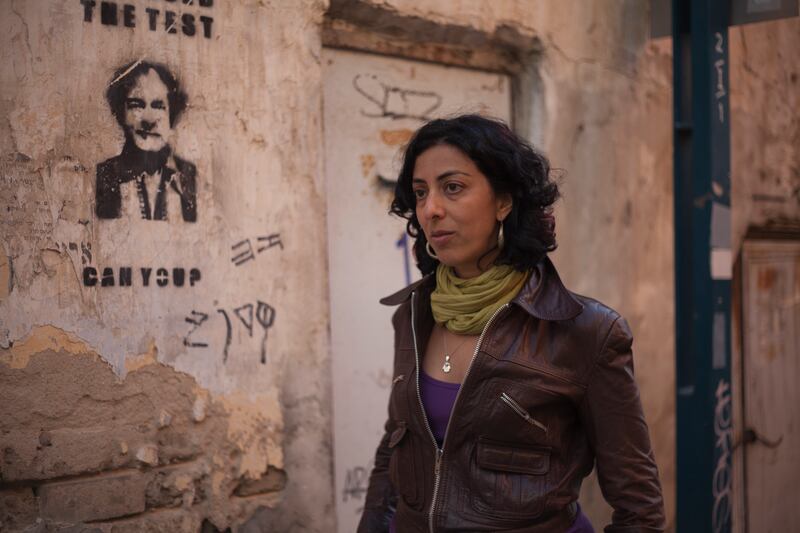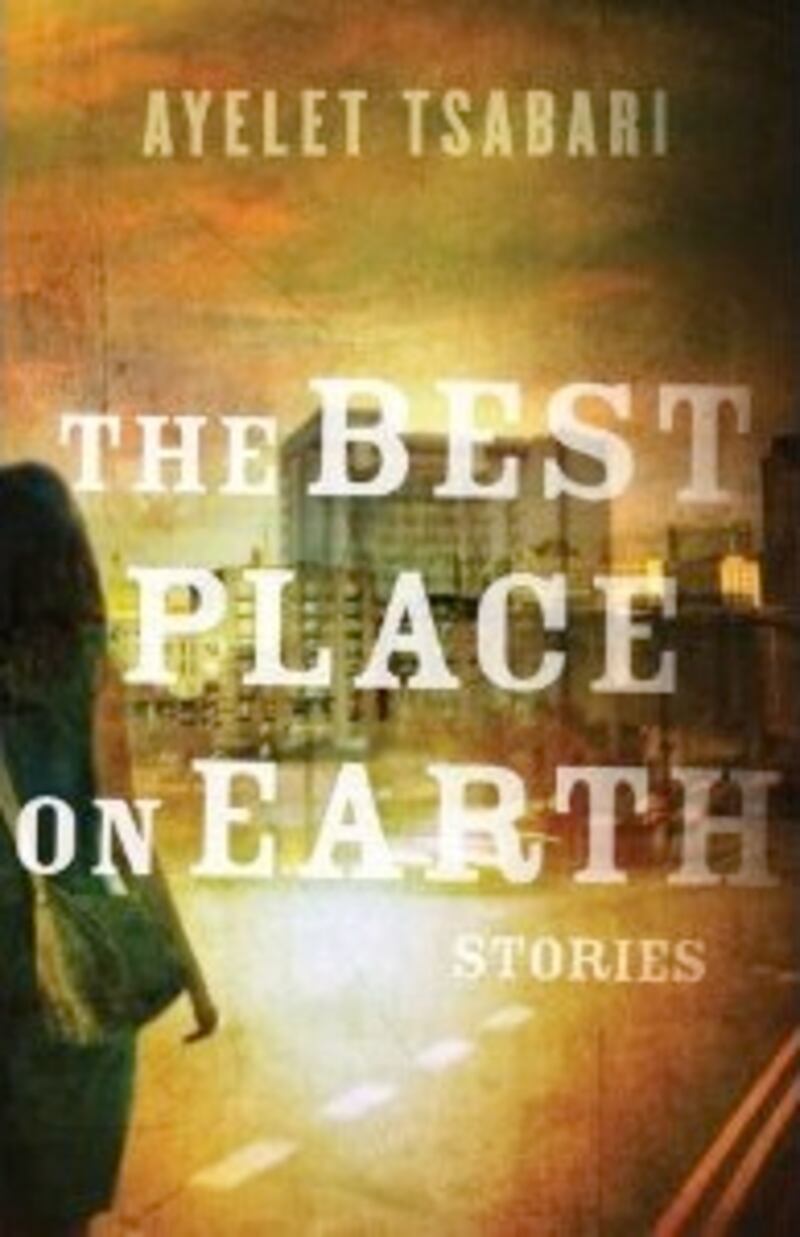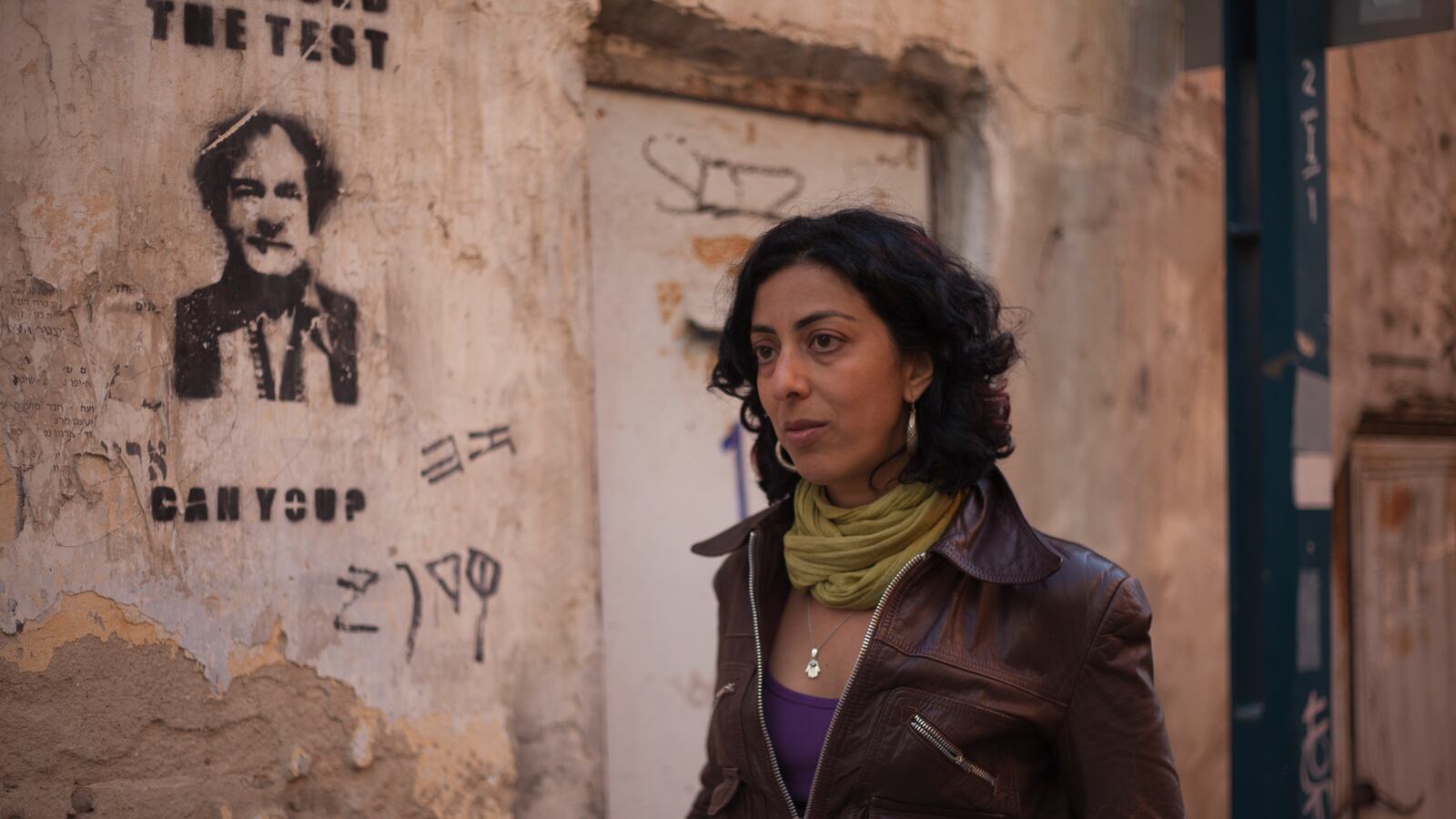
Before Ayelet Tsabari penned her debut short story collection, The Best Place On Earth, the thought of writing a book about Israel left her feeling—to use her words—“scared shitless.” Her homeland was just too loaded, too political. Any story she might write would be bound to raise someone’s hackles—or, at the very least, to raise some tough questions: Why are her stories populated by Mizrahim (Arab Jews) and not Ashkenazim (Eastern European Jews)? Why is she willing to narrate from the perspective of a Filipina caregiver and not, say, a Palestinian? Is it even legitimate for an Israeli fiction writer to write stories that don’t mention Palestinians? Since its publication in March, The Best Place On Earth has raised all these questions and more.
At its heart, this is a book about Israel’s minorities and misfits. An Israeli of Yemeni descent, Tsabari is not interested in writing, shall we say, your bubbe’s fiction. She’s interested in cataloguing the experiences of the Mizrahi community—a population rarely represented in Israeli literature, never mind Jewish Canadian literature. In her stories, you won’t find matzo ball soup, Yiddish, or the Holocaust. Instead, you’ll find fenugreek, Arabic, and tales of forced conversion to Islam at the hands of Yemeni authorities. You’ll also see the effects of longstanding discrimination against Mizrahim, and of some Israelis’ refusal to even recognize “Arab Jew” as a category.
Tsabari, who identifies as an Arab Jew and finds the term “romantic and wonderfully controversial,” tackles Israeli resistance to it in her story “Say It Again, Say Something Else.” When teenage narrator Lily tells her friend that “my grandparents came from Yemen, so we are Arabs in a way, Arab Jews,” her friend immediately dismisses the category with a laugh. “No, that’s impossible,” she says. “You’re either an Arab or a Jew.”
In another story, “Brit Milah,” Tsabari uses the character of Ofra to explore the problem of internalized discrimination. Like many young Mizrahim who are taught to see their own heritage as inferior to that of Ashkenazim, Ofra progressively sheds the markers of her Arab identity. To her elderly mother Reuma—who still clings proudly to Arab traditions—this is as perplexing as it is painful:
It wasn’t just Reuma she had rejected: she despised anything Yemeni, even her curls, which she began straightening every morning. She even changed the way she spoke; as a little kid, she spoke like her parents, with guttural hets and ayins. Reuma lost her daughter over and over again; first she became Ashkenazi, then Canadian.
The effects of internalized discrimination reach their clearest articulation in Uri, the sensitive young protagonist of “The Poets in the Kitchen Window.” In his dreams, Uri is “taller and braver and Ashkenazi, his skin lighter, his eyes blue,” but in reality he is a Yemeni boy—an identity he thinks is incompatible with what he really wants to be: a writer. Despite his family’s encouragement, he puts away his writerly aspirations because he doesn’t believe someone like him can be a poet:
The poetry they taught at school, the books he found in the school library, were mostly written by old Ashkenazi men. He had never heard of a Yemeni or Iraqi poet, or any Mizrahi poet for that matter.
It’s precisely this underrepresentation, and its negative effects on the psyches of Uri’s real-world counterparts, that The Best Place On Earth comes to rectify. And this is what makes the book so politically powerful: By insisting on writing the stories of Mizrahim, Tsabari not only gives this marginalized community permission to be writers; she also gives them permission, simply, to be. It seems clear that, had books like this existed earlier, many would-be Mizrahi writers (including this writer) would have felt emboldened to pick up the pen at a much younger age. They might even have embraced their guttural hets and ayins, and learned to love their dark curls instead of feeling the need to straighten them.

Given how central the issue of underrepresentation is to Tsabari’s project, you might well ask why she declines to represent another one of Israel’s marginalized communities: Palestinians. And it’s true that, reading these stories—all of which depict minorities so skillfully, with such a light and accurate touch—you can’t help wishing the author had tried her hand at this one, too. But as any fiction writer will tell you, demanding that an author include certain types of characters in her stories is likely to backfire; if they don’t flow naturally from the author’s interests and experiences, they’re apt to come off the page all wrong. Tsabari, taking heat for this, has written:
To those who questioned the underrepresentation of Palestinians in my book, I explained that it was indicative of how segregated these two communities are within Israel. Palestinians were not in my schools, my places of work, my circle of friends. In fact, I didn’t make Palestinian friends until after I moved to Canada.
This explanation is eminently reasonable. It’s also, in a certain sense, beside the point. Because, even though Tsabari doesn’t actually write about Palestinian characters, her fiction manages to implicitly critique Israel’s treatment of its minorities—a critique that definitely extends to Palestinians—in a subtle, non-didactic way.
Take the story “Invisible,” which does a brilliant job of this by showing that there is an ineluctable link between mistreating one minority and mistreating another. Drawing parallels between the immigrant experiences of a Mizrahi grandmother and her Filipina caregiver in Israel, Tsabari suggests that a society that discriminates against the former will almost inevitably discriminate against the latter. Discrimination against Mizrahim is merely symptomatic of a broader system that fails to treat all of its minorities with the full dignity they deserve. Tsabari does not spell out this critique or explicitly link it to Palestinians, but for the careful reader, she doesn’t need to.






